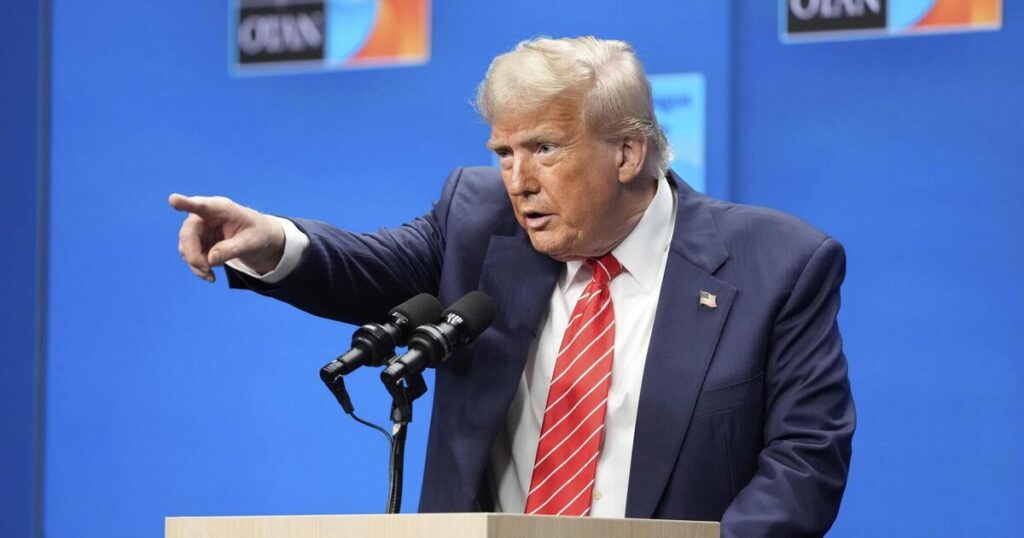US president Donald Trump compared the impact of American strikes on Iranian nuclear sites to the end of World War Two on Wednesday, arguing that the damage was severe even though available intelligence reports were inconclusive.
His comments followed reports from several media outlets on Tuesday revealing that the US Defense Intelligence Agency had assessed that the strikes had set back Iran’s nuclear program by just a few months, despite Trump and administration officials saying it had been obliterated.
The intelligence was . . . very inconclusive,” Trump told reporters at a NATO summit on Wednesday while meeting with Secretary General Mark Rutte.
“The intelligence says, ‘We don’t know, it could have been very severe’. That’s what the intelligence says. So I guess that’s correct, but I think we can take the ‘we don’t know.’ It was very severe. It was obliteration.”
The Trump administration has not disputed that the DIA assessment exists, but Trump described it as preliminary.
In a series of at-times testy exchanges at a press conference later in the day, Trump sharply criticized journalists for their reporting on the assessment.
He suggested the reports were an attack against the pilots who flew the bombing mission over the weekend targeting Iran’s key nuclear sites.
Trump said the US strikes were responsible for ending the war between Israel and Iran.
“When you look at Hiroshima, if you look at Nagasaki, that ended a war, too,” Trump said, referring to a pair of US nuclear strikes on Japan in 1945 that essentially ended World War II. “This ended a war in a different way.”
Trump has an uneasy relationship with the US intelligence community, and the success of the strikes is politically critical to him.
His right-leaning supporters had argued loudly beforehand that such military intervention was inconsistent with Trump’s domestic-focused “Make America Great Again” agenda and his promise to avoid foreign entanglements.
Trump has countered by insisting that Iran must never be allowed to obtain a nuclear weapon – a goal that an accurate, decisive attack would support.
He was flanked at both appearances by Secretary of State Marco Rubio and Secretary of Defense Pete Hegseth, who also cast doubt on the reliability of the DIA assessment. Hegseth in particular cast much of his fury at the news media.
“When you actually look at the report – by the way, it was a top secret report – it was preliminary, it was low-confidence,” Hegseth said in the appearance alongside Rutte. “This is a political motive here.”
He said the FBI was investigating a potential leak. Rubio suggested that those responsible for sharing the report had mischaracterized it, saying: “This is the game they play.”


